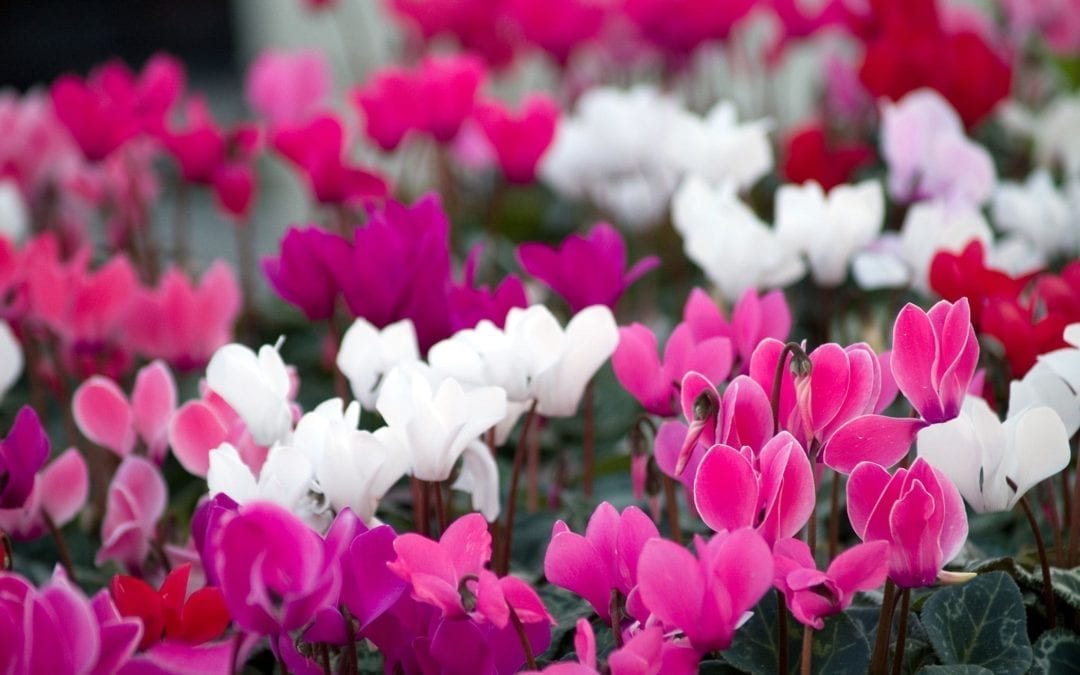At long last. It’s time to take a deep breath, because the physical work, and often frenetic pace, of the growing season is over. Not having a million things to accomplish in the garden may make some folks bereft, but many others so happy. The Garden Center is emptying out of plant material and stocking up on holiday decor. Plants are lined up, ready for frost blankets and mulch piles. All of us here have such mixed emotions about the end of the gardening season. What about you?
Lots of gardeners put their houseplants outside for the summer. They grow like crazy and are much easier to care for. By now, you’ve brought them back inside, inspected them for bugs, and arranged them according to light level requirements. With shorter day lengths and the inevitable cloudy days of late fall and early winter, your plants won’t be using as much water. Be sure to check the soil before watering. Always water thoroughly, but then let the soil dry before watering again. A moisture meter can be a good investment if you are an over-waterer. Cut back on fertilizer too, especially for foliage plants. Don’t be alarmed if some leaves begin to yellow and fall off the plants. In fact, you should expect some leaf loss as your plants re-adjust to indoor living.
For winter bloomers like orchids, cyclamen and Christmas cacti, now is the time to be using a bloom boosting fertilizer. Orchids especially, are often grown in a bark mixture, which doesn’t retain nutrients very well, so start following a regular feeding schedule. We like water, water, fertilize. You’ll reap the benefits in January and February when flower spikes appear like magic.
Keep checking for insect pests. Observation is the key to catching problems early when they are still treatable. Bond with your plants, looking at them often and doing weekly inspections. They’ll reward your efforts with less maintenance time. Some people play music for their houseplants, talk to them and even name them. We say do whatever works. Every gardener has their own secrets.
Keep on raking leaves and removing them from grassy areas. If left on the lawn, large leaves block the sunlight and trap moisture, increasing the risk for disease and winter damage. And it’s almost time to pack up your lawn equipment. Clean the blades on your mower, stash your trowels in a bucket of sand mixed with a bit of motor oil and find a safe place for your pruners.
Your lawn will keep growing until the ground freezes, but the rate of growth slows considerably. And though you may not notice much happening above the ground, underneath is a different story. So if you didn’t apply a winterizing fertilizer to your lawn in October, don’t despair. The nice weather we’ve had means that there is still a bit of time left for one last application. Look for a slow-release product, like Scotts Lawn Pro Fall Lawn Fertilizer. Just be sure to get it on the lawn before it snows.


